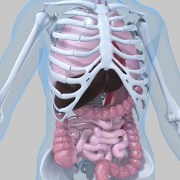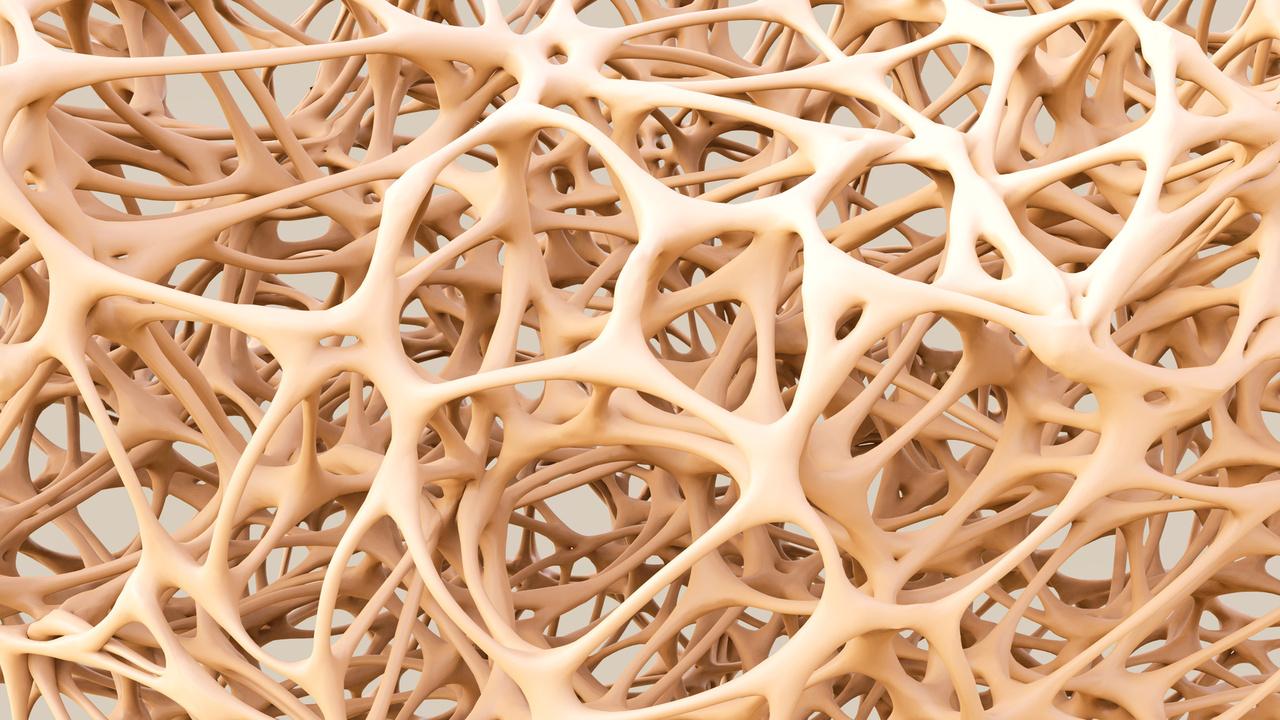Osteoporosis: Serotonin in the Gut May Be Key to Bone Loss
 Photo: Getty Images
Photo: Getty Images
Osteoporosis is a disease of low bone density. Bone is constantly being broken down and built back up throughout our lives.
Your skeleton is actually considered an organ, according to the Journal of Cell Biology, and you may be surprised to learn that your skeleton is the only organ in your body that dismantles and rebuilds itself. The process for this is called bone modeling.
After about age 20, our bones are doing more breaking down than building up and over time, our bone density decreases. For women after menopause, bone density shrinks more rapidly due to the drop in estrogen levels. As bone density diminishes, the bones also become porous and vulnerable to fractures and breaks.
According to a release from EurekAlert dated November 26, 2008, research from Columbia University Medical Center discovered that bone growth is regulated by serotonin by way of the gastrointestinal tract. We knew that this is where 95 percent of our serotonin is produced, and that the other five percent is produced in the brain. What we didn't know was that serotonin played such a crucial role in the health of our bones. This data was published in the November 26, 2008 issue of Cell.
In a study on mice, scientists discovered that cells in the skeleton are directed by gut-derived serotonin to slow bone production. When scientists stopped the release of this peripheral serotonin by the intestines, osteoporosis was stopped in the mice.
Serotonin (5-hydroxytryptophan [5-HT]) performs a variety of functions from a couple of locations.
From the brain, it acts as a neurotransmitter which aids in increasing bone density, enhancing bone formation and restricting bone breakdown. It regulates cardiovascular function. It affects primary hemostasis (platelets forming a plug at an injury site), mood and behavior, as well as bowel regularity.
It had been assumed that gut-derived serotonin would major on the regularity issues but this peripheral serotonin is more versatile than was previously thought. Gut-derived serotonin acts as a hormone to curb bone formation.
According to an article in ScienceDaily from February of 2010, an investigational drug inhibiting serotonin synthesis in the gastrointestinal tract was used on mice and rats to successfully halt osteoporosis. This research was also performed at Columbia University Medical Center and was published in the February 7th issue of Nature Medicine.
Most drugs presently used for osteoporosis prevent old bone from breaking down. Only one drug is able to produce new bone, but it also may raise the risk of bone cancer so other options are wanted. It is hoped that this link between gut-derived serotonin and osteoporosis will help to find new treatments for bone density loss.
Resources:
Inhibiting Serotonin in Gut Could Cure Osteoporosis
http://www.sciencedaily.com/releases/2010/02/100207145344.htm
Bone Finding May Point to Hope for Osteoporosis
http://www.nytimes.com/2008/11/27/health/research/27bone.html
It takes guts to build bone, Columbia scientists discover
http://www.eurekalert.org/pub_releases/2008-11/cumc-itg111908.php
Serotonin: what the gut feeds the bones: chemical messenger plays a surprising role in determining the strength of the skeleton.
http://www.thefreelibrary.com/Serotonin%3A+what+the+gut+feeds+the+bones%3A+chemical+messenger+plays+a...-a0201599687
The two faces of serotonin in bone biology
http://jcb.rupress.org/content/191/1/7.full
Visit Jody's website and blog at http://www.ncubator.ca and http://ncubator.ca/blogger






Add a CommentComments
There are no comments yet. Be the first one and get the conversation started!